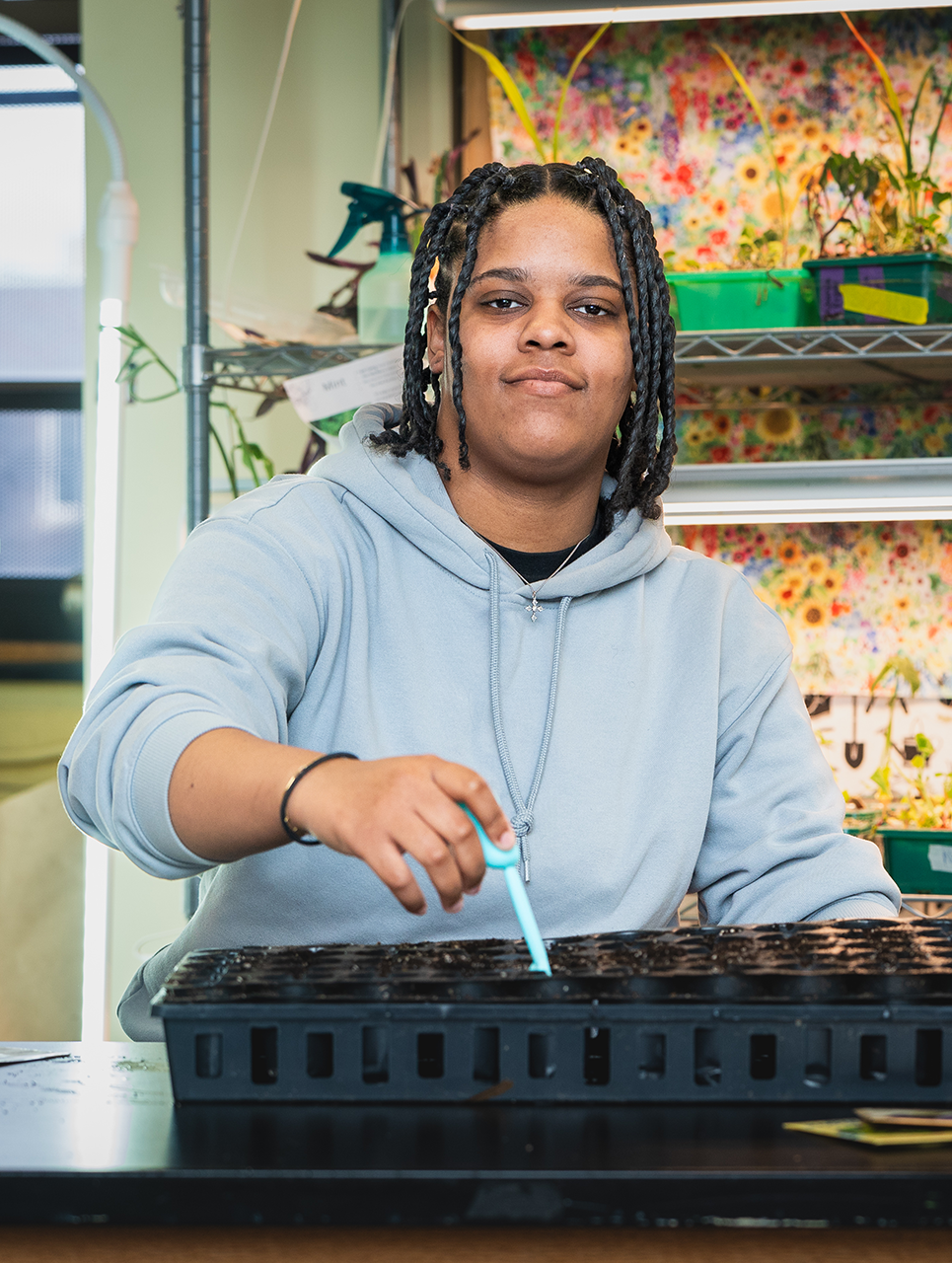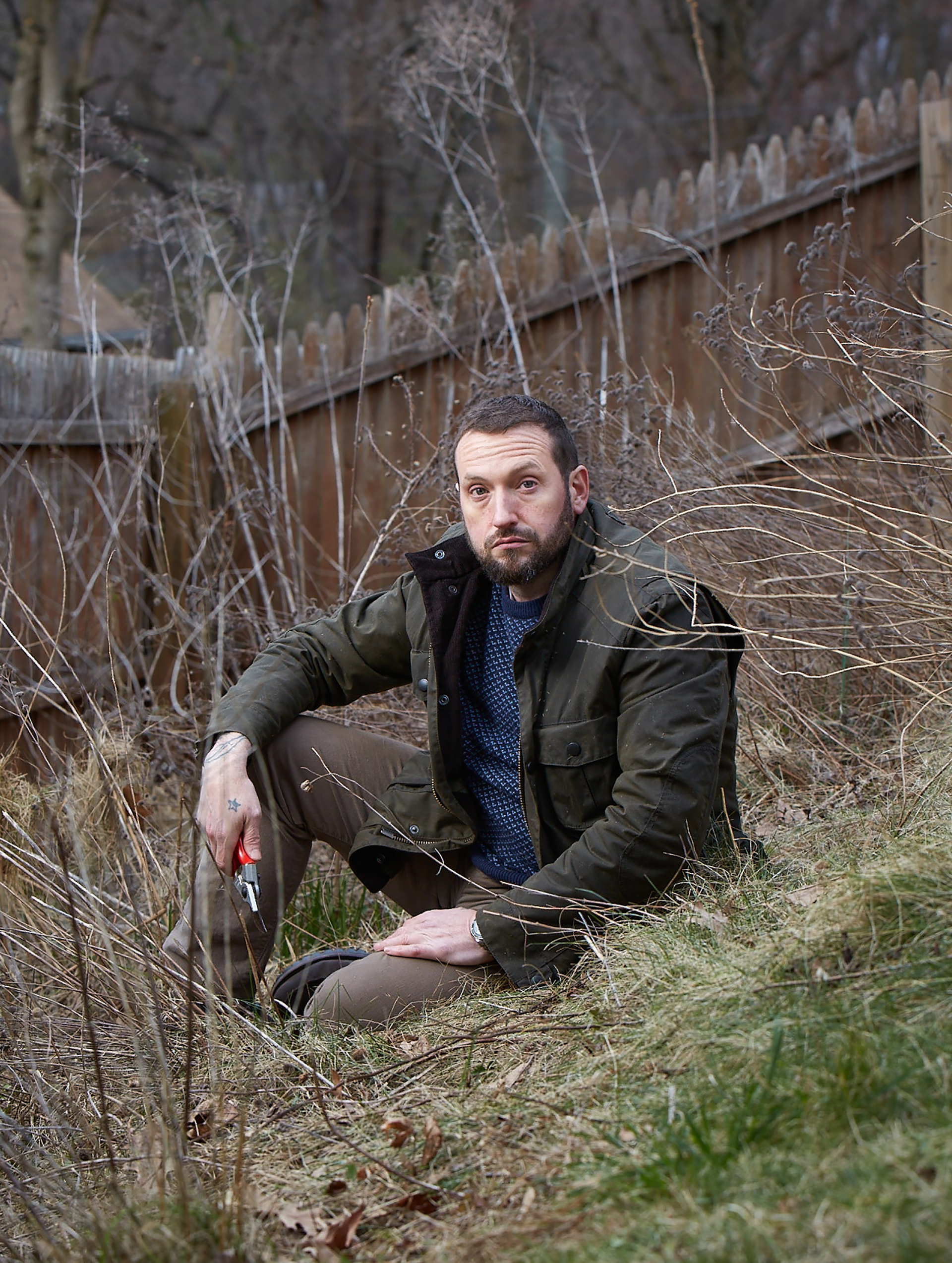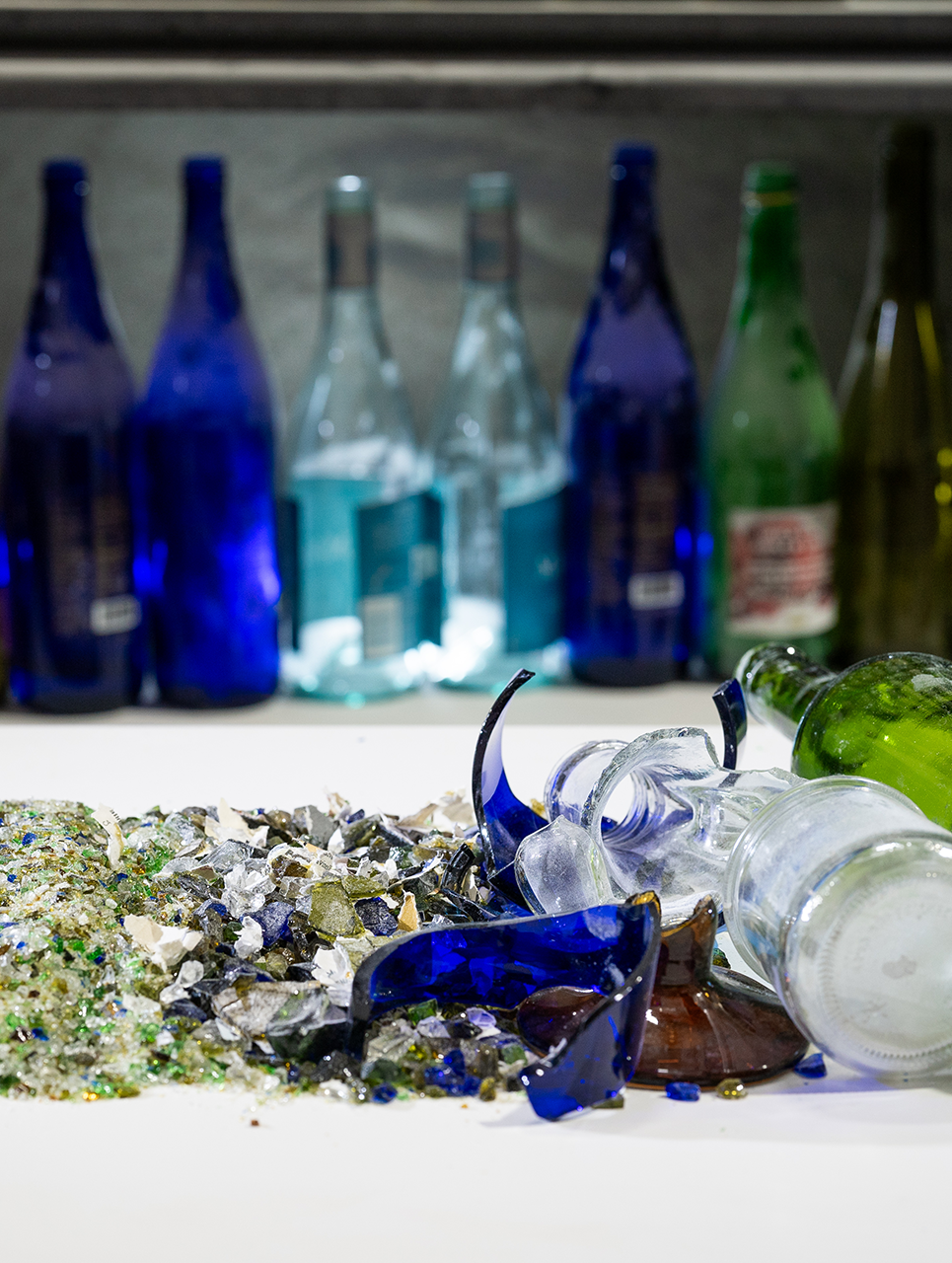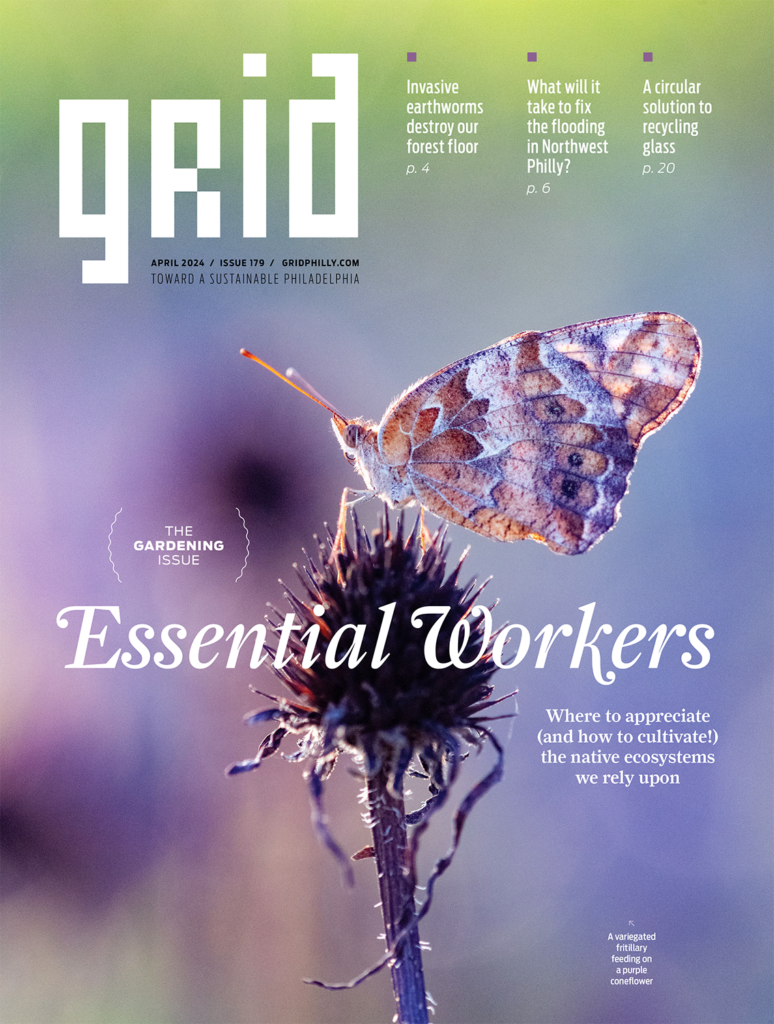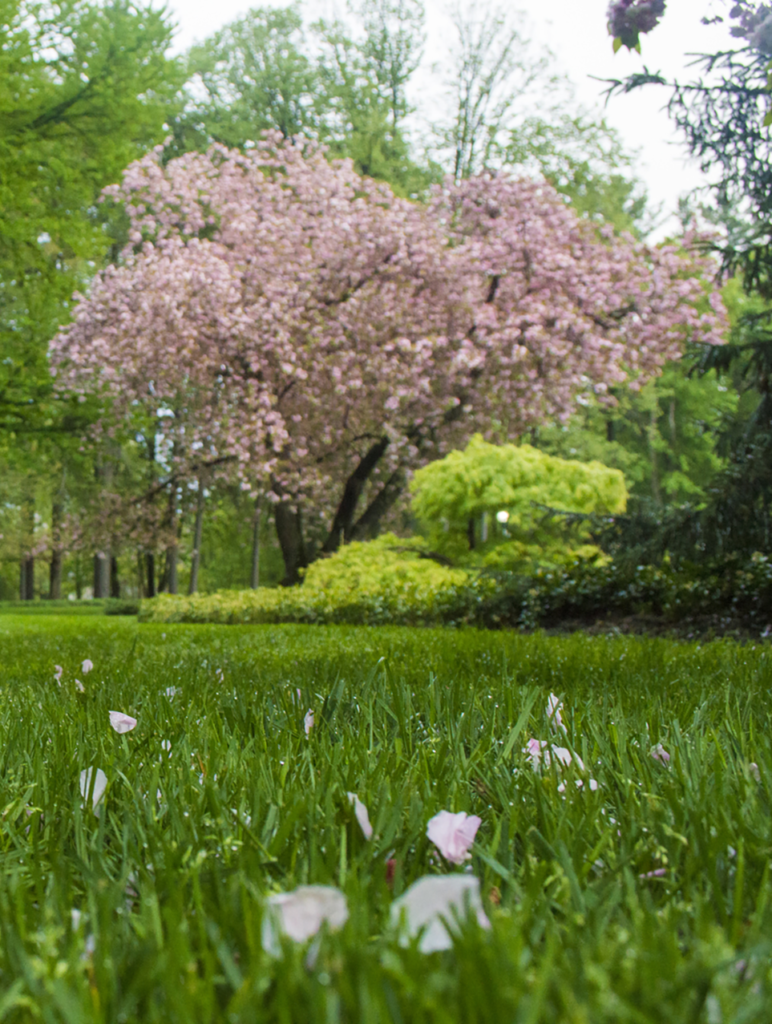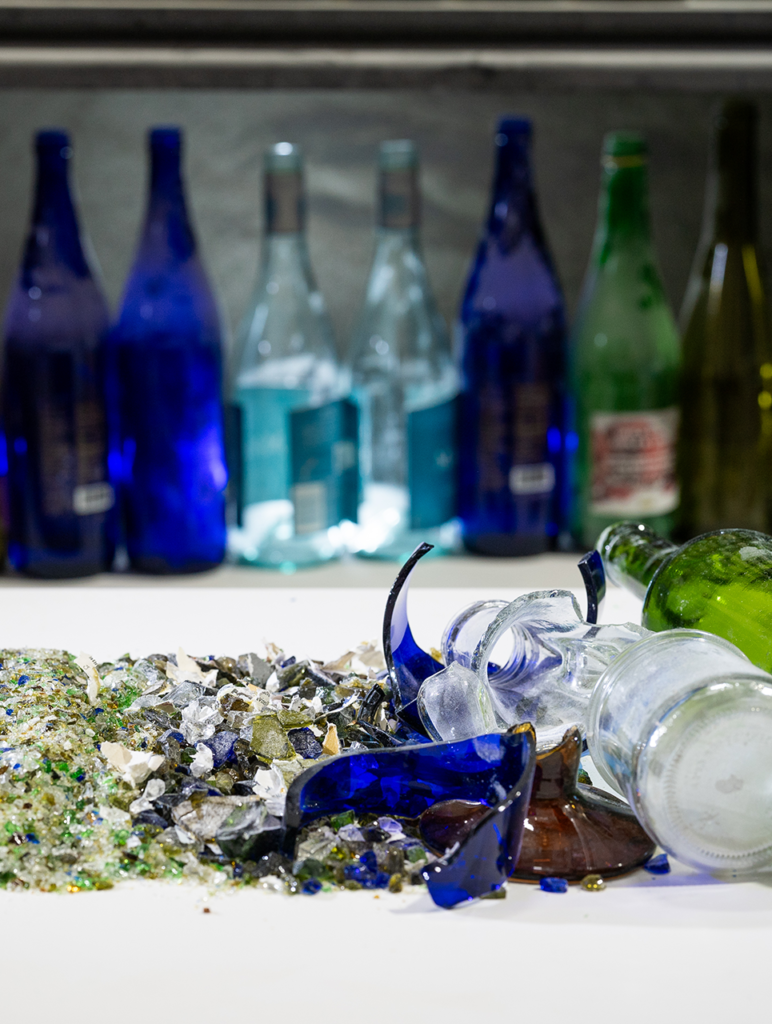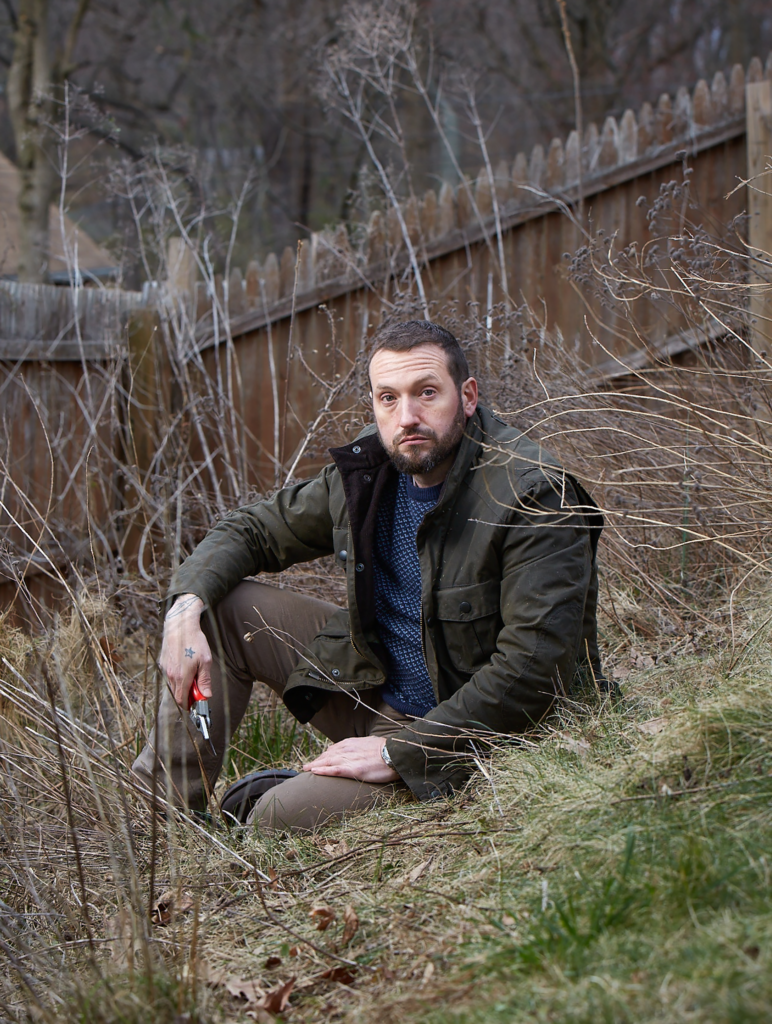Amani Lee, a senior at The U School, hadn’t given gardening much thought until this year. As part of her school’s horticultural program, she’s now researching crops in Ukraine, Puerto Rico and the Dominican Republic. She is learning what the people in these countries grow and eat, and the stories behind their famous dishes.
Under the guidance of Anna Herman, a long-time urban agriculture educator, Lee is working alongside classmates to help design a demonstration garden at Fox Chase Farm, home to the School District of Philadelphia’s agricultural program.
The demonstration garden will be organized by plant family, with varieties from multiple cultures grouped in the same area, says Herman. Potatoes, she explains, originated in the Andes, but they have migrated around the world and become important in places like Ireland where they might be used in a different way. The origin stories are part of the learning.
In one area dedicated to tomatoes, the garden will have a variety that came to this region by slave ship, another through the Dominican Republic, one that connects to a local African American painter and yet another gifted from someone’s Italian grandmother. The objective for students is to know the plants’ geographic origins, the migration stories and the environmental factors that determine whether they’ll grow in Philadelphia, says Herman.
The demonstration garden is part of a new partnership with Fox Chase Farm, 112 acres in Northeast Philadelphia owned by the City and managed by the school district where students get hands-on experiences among diverse plants and animals. Programming at the farm seeks to honor the cultural backgrounds of the students themselves; the district’s students speak 167 languages.
A lot of people will say agriculture is just the cows and the plows, but at the end of the day, we’re everything.”
— Dr. Mandy Manna, Fox Chase Farm
Dr. Mandy Manna, founder of agriculture innovations and strategic development for the district, wants to reach every student. Lesson themes on the farm range from animal science to ecology to wildlife conservation, but Manna says that agriculture, especially in controlled environments like greenhouses, can touch every trade from construction to robotics. “A lot of people will say agriculture is just the cows and the plows, but at the end of the day, we’re everything.”
Staff at the farm have trained 85 Agriculture Empowerment teachers throughout the district. This training enables teachers like Herman to bring students weekly for independent lessons. “They extend [lessons] here and think of the farm as being their living laboratory,” Manna says.
Some schools train older students to serve as farm tour guides for younger students with the advantage that sometimes they can explain things in the students’ native languages. And often the learning works in both directions. A current project has students making loofah sponges after a sixth grade student from Puerto Rico talked about growing loofah from seeds back home.
For the U School’s demonstration garden, students are learning growing requirements for various crop families, planning crop rotations, measuring needed space and testing soils, says Herman. Lee will utilize her new learning by giving lessons to younger students from the surrounding neighborhood in a garden club. “Recently my best thing is soil testing,” Lee says. “I’ve done it three times in total, and I’ve even sent a lab back to get reports.” She likes the opportunity it gives her to be outside. “It’s fun. Sometimes you get dirty and messy, but I didn’t realize the importance of soil testing.”
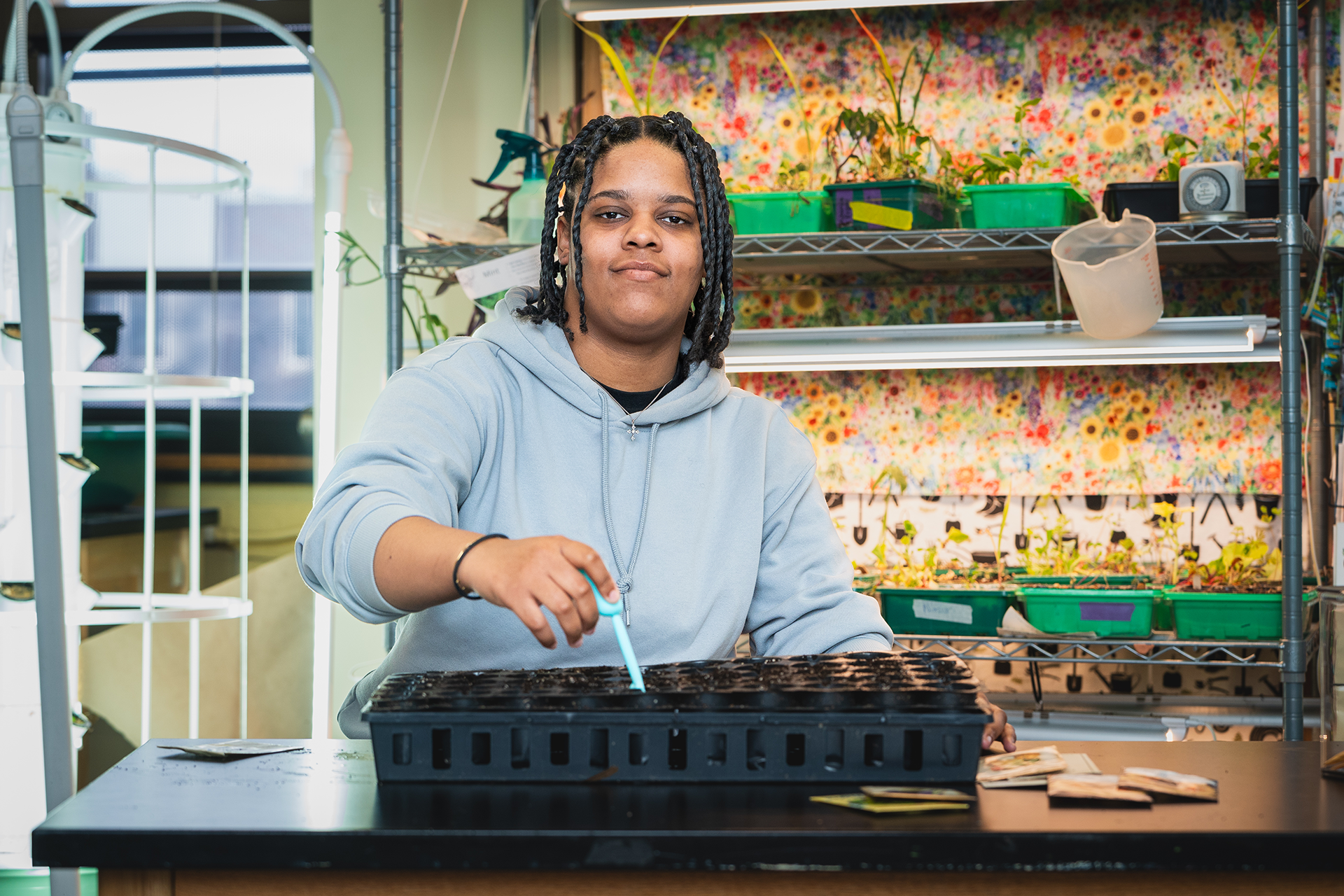
Although the soil at Fox Chase Farm has tested as among the most fertile in the state, according to Manna, an environmental investigation by The Philadelphia Inquirer and Daily News in 2017 found that there are many sites in the city where soil contains hazardous levels of lead.
The economic impacts of agriculture and related industries in Pennsylvania are more than $81 billion, which makes it one of the state’s top industries, according to a Pennsylvania Department of Agriculture report based on data from 2021.
However, food insecurity across the state averages 9.4%. In the second and third Congressional districts that represent most of Philadelphia, the rates of insecurity range between 12.7 and 15.7%, according to 2021 data reported by the nonprofit Feeding America.
To help bring about change, Manna says Fox Chase-supported horticultural programs are making their way into individual schools. Currently, products grown on the farm, like herbs, eggs and teas go to eleven culinary programs throughout the district. Summer employment for students supports this work; last year the farm hired 38 students during the summer. Manna says her goal is to up that number to 70 this year. She envisions a network of greenhouses, vertical growing systems and hydroponic gardens that will expand the available food supply in the surrounding communities.
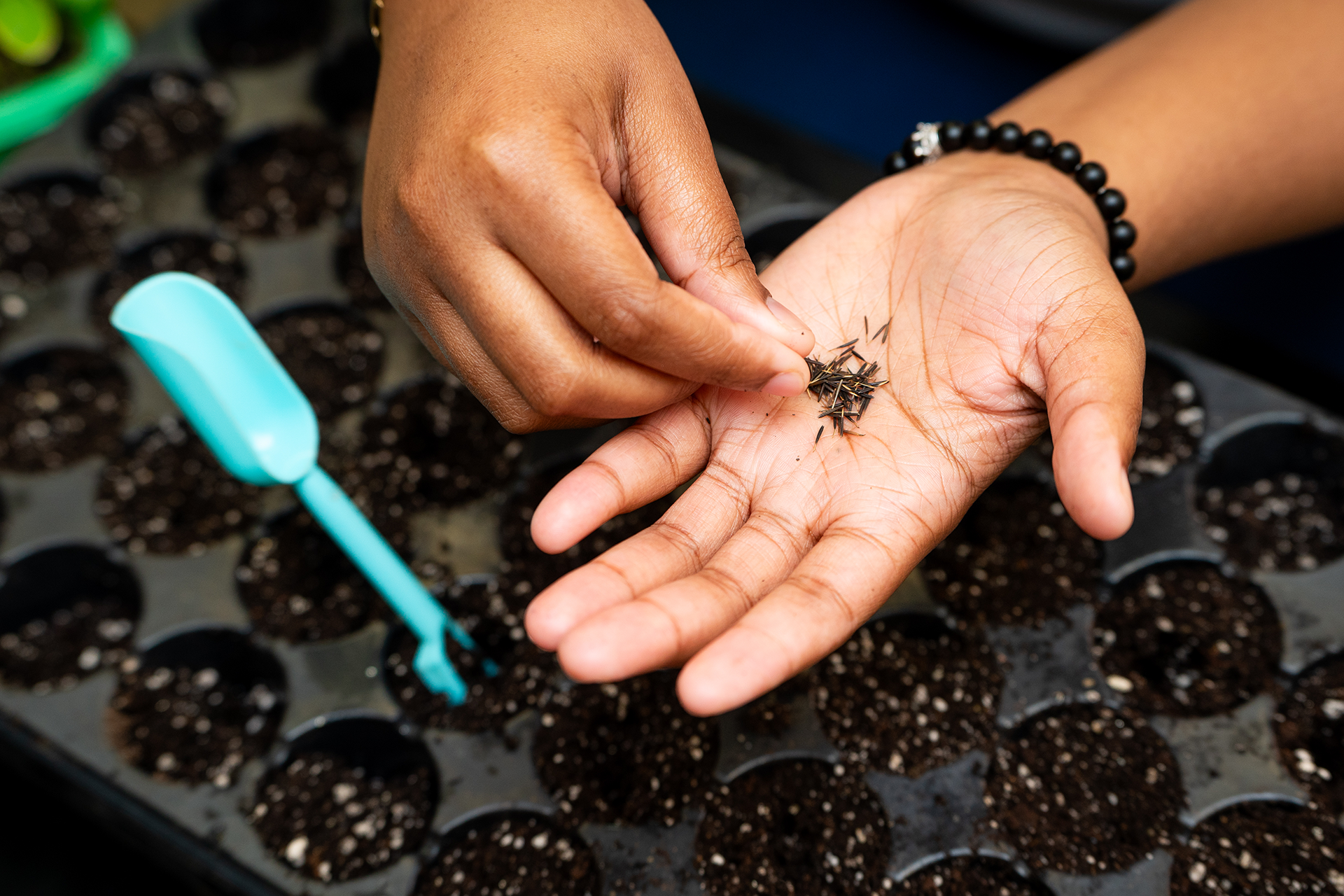
Thirty thousand visitors, most of them schoolchildren, come to Fox Chase Farm each year, and Manna is certain their experiences expose them to a world of possibilities. “You can’t test for that enthusiasm and that experience, but you can see that the students are making the connections,” Manna says.
On a raw morning in February, Lisa Foley, the science teacher at Kennedy C. Crossan Elementary School, watched her fourth grade students ask questions as they sat around a boiling vat of sap slowly turning to maple syrup, a practice that traces back to Native Americans.
Foley has been bringing students to the farm for 12 years and says that it brings learning to life for them. “When we come to the farm, it’s not so much a trip, it’s an extension of everything we do in the classroom,” she says. “It’s almost like home away from home … everyone shows up for the farm.”


